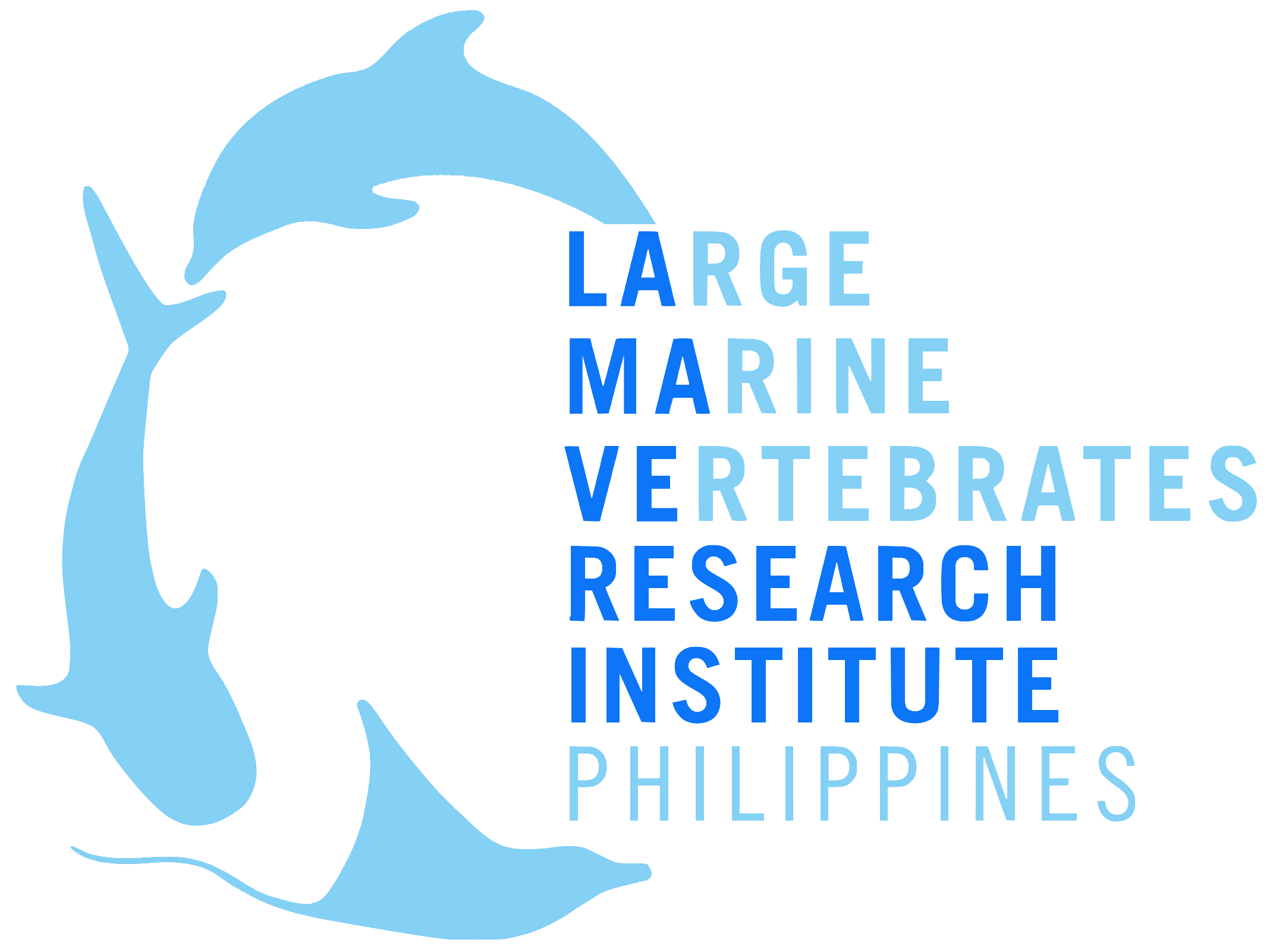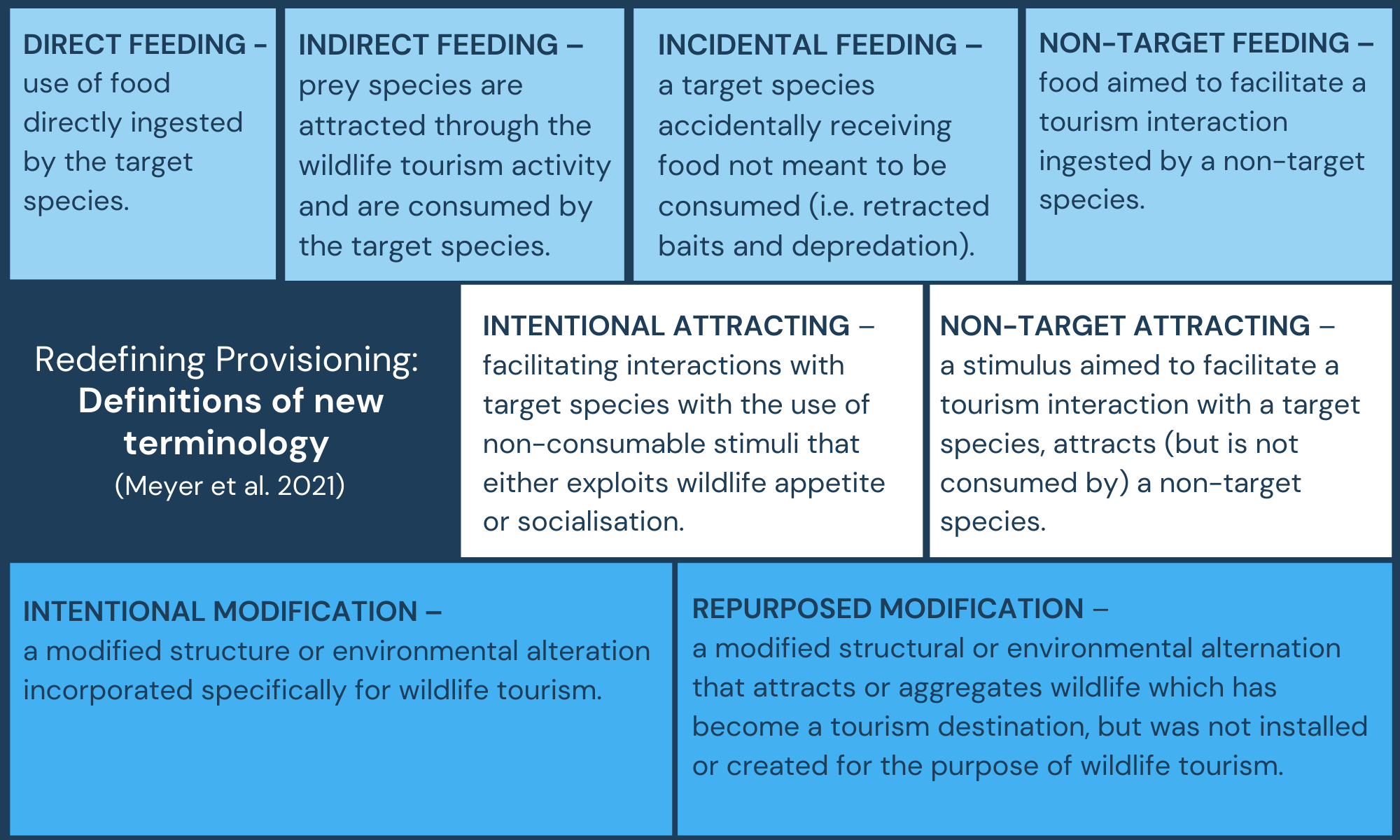Press Release
New study redefines provisioning in marine wildlife tourism
Philippines, 29 June 2021, A new study by researchers from the Southern Shark Ecology Group at Flinders University, James Cook University and Large Marine Vertebrates Research Institute Philippines, amongst others, has reviewed the current use of provisioning-associated terminology within the marine wildlife tourism sector and has proposed to reclassify provisioning into Feeding, Attracting and Modifying habitat.
The team explored the current use of provisioning-associated terminology used by scientists and tourism operators in regard to marine wildlife tourism by conducting a scientific literature search, including the analysis of 110 publications detailing wildlife tourism and stating an activity used to attract wildlife, and a tourism webpage search amounting to 143 webpages, covering 102 tourism sites.
Results revealed that in the scientific literature the term provisioning was used interchangeably with attracting, chumming, feeding, supplementary, and artificial feeding. While the tourism webpage review showed that over half of tourism operators did not even mention attracting in any form on their webpage and operators who did mention some level of attraction being used did not use provisioning but rather the terms attracting and feeding. Interestingly half of shark tour operators, who did not disclose whether they attract sharks, actually used chum (57%) or fed sharks (43%). The inconsistent and unspecific use of provisioning and attracting by both scientists and tourism operators promoted the team to develop a framework outlining new terminology (see figure 1 & 2).
The new terminology provides a clear overview of what activities and attractants are being used during marine wildlife tourism interactions. For example, the provisioning of whale sharks for tourism in Oslob, Philippines would be redefined as the Direct Feeding of whale sharks.
This new framework and terminology enable scientists and tour operators to clearly define the activities taking place, whether in the scientific literature or the marketing of marine wildlife tourism activities, reducing the opportunity of misinterpretation and increasing transparency and intent of the operations.
Figure 1. New classification framework to define terminology for provisioning-associated activities. New terminology is highlighted above the dotted line.
Figure 2. Definitions of new terminology for provisioning.
Notes to Editors:
The study by Meyer et al., titled ‘Redefining provisioning in marine wildlife tourism’ is published in the Journal of Ecotourism and is available here: https://www.tandfonline.com/doi/pdf/10.1080/14724049.2021.1931253?needAccess=true%20%203
A copy of this Press Release can be downloaded HERE.
Lead author Dr Lauren Meyer completed her PhD with the School of Biological Sciences at Flinders University, Australia and is currently working as a Research Associate at Flinders University.
Large Marine Vertebrates Research Institute Philippines (LAMAVE) is the largest independent non- profit non-governmental organization dedicated to the conservation of marine megafauna and their habitats in the Philippines. LAMAVE strives for conservation through scientific research, policy and education. For more information visit: www.lamave.org | Facebook | Instagram | Twitter.





